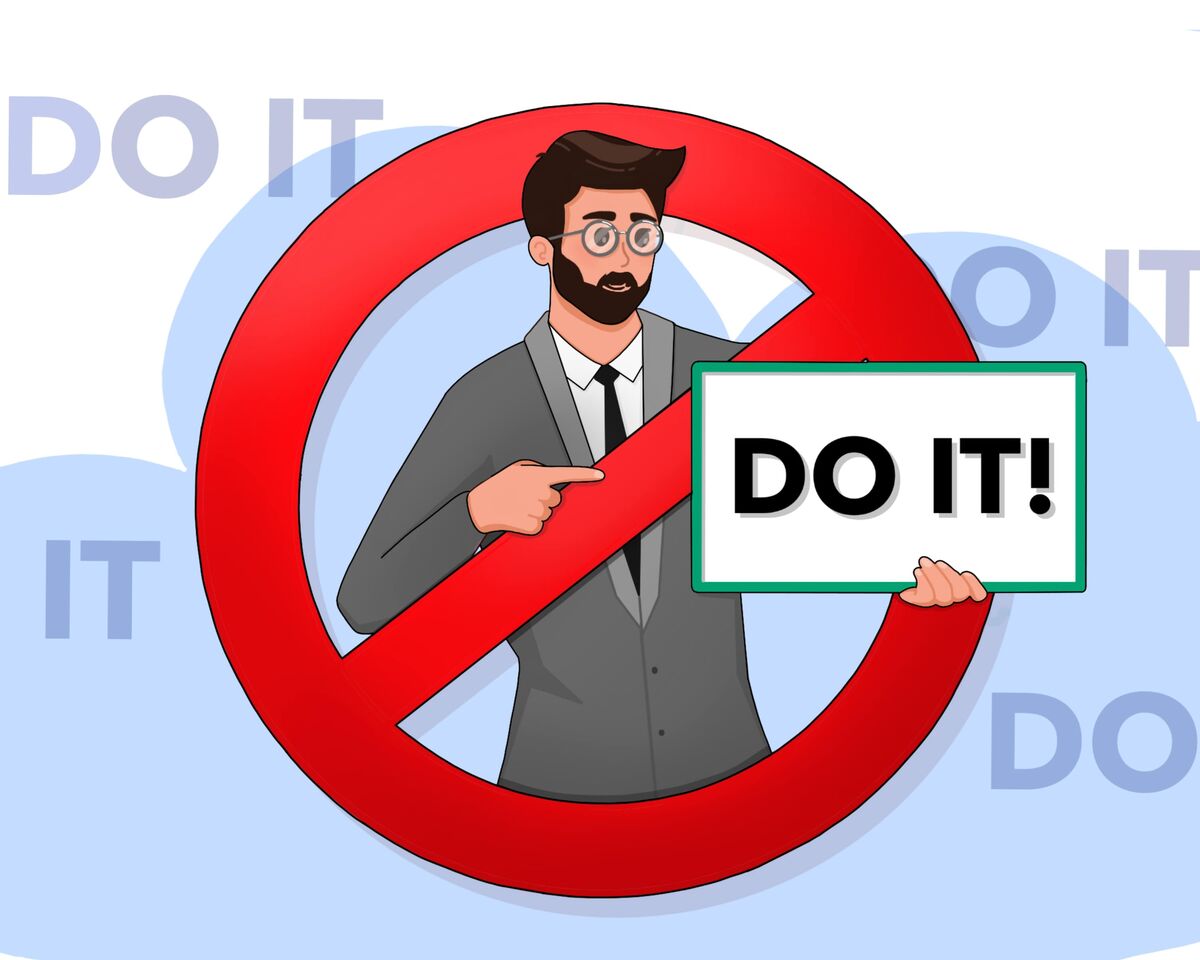How to promote on YouTube? Marketing 101: Positioning.
 In today's highly competitive world, where millions of creative creators vie for attention on YouTube, it's crucial not only to be diligent and create good content but also to be a bit of... a marketer.
In today's highly competitive world, where millions of creative creators vie for attention on YouTube, it's crucial not only to be diligent and create good content but also to be a bit of... a marketer.
Without skillful self-presentation, you won't be able to convey to the audience how incredible your knowledge is or how humorously you joke in your videos. This is where effective positioning helps YouTubers.
In marketing, positioning refers to the process a brand undertakes within the minds of potential customers, or in our case, viewers. It involves creating a specific image of your content, thereby establishing a distinct presence in their perception.
The task for a YouTuber, in today's era of information overload, is to discover their unique identity, select an appropriate positioning strategy, and actively promote their brand. Without these steps, achieving success becomes significantly challenging.
Basic rules to position your content effectively:
Have you noticed the information overload online? Advertising reaches us literally everywhere: on the street, in the bus, on a plane, online, in social media, even during podcast listening.
Given its volume, it's crucial to establish some fundamental rules of the modern world: the simpler your message to viewers, the more effective your positioning strategy will be.
Now, let's turn to the essential principles outlined in the book, "Positioning: The Battle for Your Mind" by Jack Trout and Al Ries, which we will rely on.
Be the first one -
This doesn't necessarily mean being the first in reality; it means "highlighting your primacy in something." Those who are first are always remembered. For instance, the first person in space was Yuri Gagarin, on the Moon, it was Neil Armstrong, in cinema, it was the Lumière Brothers, and so on.
In these examples, they were indeed the first, but there's another concept you should consider—positioning yourself as the first in something. For example, "Coca-Cola" positions itself as a leader in the production of carbonated beverages, but it didn't invent them.
Consumers often place their trust in brands that establish themselves as market leaders. This tendency is particularly evident in the tech industry, where established brands typically inspire greater confidence than lesser-known, emerging ones.
If Mr. Beast holds the top position in the entertainment niche on YouTube and you aim to operate in the same genre, your goal should be to carve out a unique category within this space where you can be the leading channel.
"If the first place in your category has been taken by someone else, then create a new category for yourself and be the first in it. It's better to be a big fish in a small pond (and then expand it) than a speck in the ocean," convey the authors of the book.
For instance, you could be the first vlogger doing a live show or the first creating a content format exclusively for children.
That's why it's more effective for novice creators to focus on narrower topics initially, increasing their chances of grabbing top position. Over time, you can expand your influence, but for now, build a loyal audience.
Today, human consciousness filters out general information and focuses only on specific details. The only chance to be noticed is to use selective messaging, concentrate on small groups, and segments.
The strategy of "be the first" can include identifying unexplored areas or weaknesses in your competitors' approaches. This gap might not just be a few topics that major influencers have overlooked but could also relate to the unique focus or orientation of your content.
For example, while numerous channels offer general educational content for children, there are few creators who tackle these subjects for younger audiences. Topics like financial literacy or basic psychology should be made accessible to children and teenagers. These subjects, commonly targeted at adults, could be highly sought after by younger viewers
If you find yourself in something similar, channel your efforts into forming a clear connection in the audience's minds between a specific topic and your name or channel name.
Keep in mind that you don't get a second opportunity to make a first impression. This is why the work of positioning is typically undertaken before launching a YouTube channel.
The primary objective of positioning is to secure a distinct and lasting presence in the consumer's consciousness -
Human memory is not infinite, so to establish yourself in the audience's consciousness, you'll have to displace something else. However, this is an unrealistic task.
With an ever-increasing amount of information, creators, and brands churned out daily, people subconsciously rank them. People aren't ready to accommodate new information in their minds, but they can easily assign it a position relative to the old information. Let's use an example to make it simpler.
Continuing with the channel in the same niche as Mr. Beast, you don't need to invent a new category of entertainment. Instead, tell your audience about yourself, emphasizing that you're not Mr. Beast, and provide examples of your differences.
Positioning is not about highlighting your differences from competitors but creating a clear image in the audience's mind of who you are.
A common mistake is for creators to position their content as if other videos on the same topic don't exist on YouTube. Do not focus on competing with your rivals but on how you'll appear in the eyes of the audience. The most significant battles happen in people's minds, not in advertising campaigns.
Base your positioning on what's already present on the platform, highlighting the differences from existing offerings.
Try telling people about what makes you similar to Mr. Beast: that you're also an entertaining channel that provides a sea of emotions and does incredible challenges, but you do it as a show for children. These categories are familiar and understood by viewers because they've seen and liked them.
Don't take the advice literally. Don't openly say, "I'm like Mr. Beast." Instead, use understandable categories for your positioning with your audience.
Another crucial point: don't try to tell people they're wrong. Saying, "You don't need Mr. Beast because I'm here!" won't work. By making such statements, you're trying to change their minds, which are already overloaded. Plus, who likes having opinions forced upon them? You'll lose the battle to position yourself in people's minds.
Don't lose focus on your position -
YouTube is a long-term game. Every creator needs to understand and accept this throughout their time on the platform. Therefore, all creators require a long-term channel development strategy with clear positioning, leaving room for short-term maneuvers.
As you grow and evolve on the platform, try not to change your positioning and strategy, but be flexible in adapting to trends or global changes.
Imagine you've created your strategy, defined your positioning, narrowed down your uniqueness in the niche, but the competition is still significant. What else can help creators market themselves more efficiently?
Displace competitors from their positions -
This tactic, lacking in ethics and respect for others' work, might be employed by some for positioning purposes, though it is generally ill-advised.
Additionally, it's worth noting that this approach does not always yield positive results. More commonly, it may result in your brand attracting widespread disapproval. However, as the saying goes, "any publicity is good publicity," if you are comfortable with this approach.
To displace someone from a top position, you need a very powerful strategy and positioning because merely telling people that Mr. Beast is terrible and you're better is not enough. Some vloggers in specific niches build their brand by critiquing the content of other creators, pointing out mistakes, and positioning their opinion as the only correct one.
Your name/title should speak for you -
An important, though not the primary, aspect of positioning is the naming of your channel, essentially your brand. This can be a decisive factor under certain circumstances.
For instance, in scenarios where two channels are very similar and are competing for audience attention, the name you've chosen for your channel becomes particularly significant. If the name is well-crafted and appealing, it can successfully capture the majority of the audience's attention.
Gaming channels that decided to give their channel an incredibly unique name in the form of their gaming nickname or something that is impossible to pronounce or remember will lose in this scenario.
Stick to general descriptive names that make it easy to understand what your channel is about, who the main character is, what the essence of the content is, and be wary of invented names – they simply won't be memorable to your potential viewers.
Some names simply become outdated, but a bad name won't get better no matter how much time passes.
It's also an ill-advised strategy to leverage a well-known name, such as Mr. Beast, for your own channel. Your content is unlikely to match the level of such established creators, and by not choosing a unique name, you miss the opportunity to attract viewers with your own distinct identity.
Be consistent in your positioning -
If you're an expert discussing fashion but film in a bathroom with dirty walls, it's unlikely you'll occupy a worthy position in people's minds. Building a brand isn't just about a cool channel name or great visuals; it involves attention to every content element. It's a complex topic requiring understanding, time, and, most importantly, hard work.
Creators who believe it's impossible to gain popularity on YouTube today may not have discovered their unique angle or positioned themselves effectively against competitors. Following this line of thought, starting any business would seem futile, as it might appear that all niches are already filled. However, consider how Burger King successfully challenged McDonald's dominance in fast food. The critical factor lies in what you're prepared to offer and how you present it.
Success in today's world, with its overwhelming choices and communication channels, isn't about the best product but the best idea anchoring that product in consumers' minds.
For those interested in positioning, we recommend reading "Positioning: The Battle for Your Mind" by Jack Trout and Al Ries. It delves deeper into the subject.
In conclusion, while YouTube is a highly competitive platform, remember that your unique place is secure and irreplaceable. Embrace the art of positioning yourself effectively. Each of us has a distinct uniqueness to offer to the world.




